
Copernical Team
Key findings from the European State of the Climate Report

Europe experienced its warmest summer on record in 2021, accompanied by severe floods in western Europe and dry conditions in the Mediterranean. These are just some of the key findings from the Copernicus Climate Change Service’s European State of the Climate report released today. The in-depth report provides key insights and a comprehensive analysis of climate conditions in 2021, with a special focus on Europe and the Arctic.
Is Webb at its final temperature?
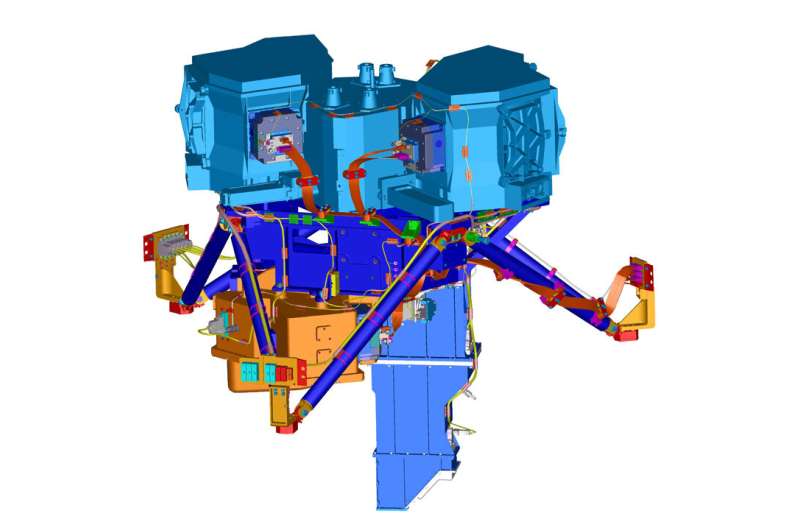
The Mid-Infrared Instrument (MIRI) on NASA's James Webb Space Telescope is now cooled by a gaseous helium cryocooler to under 7 Kelvin. With the cooler in its final state, the Webb team is operating the MIRI instrument this week as part of seventh and final stage of the telescope alignment. When the instrument is operating, the detectors and electronics produce heat, which is balanced by the cryocooler to keep MIRI at a stable, and very cold, operating temperature. The near-infrared instruments also warm up during operations and have to dissipate heat, although for these instruments this is done with passive cooling; the heat from the detectors and electronics is radiated into deep space.
Now that the instruments are at their operating temperatures, the telescope mirrors will also continue cooling down to their final temperatures, but they are not quite there yet. The primary mirror segments and the secondary mirror are made of beryllium (coated with gold). At cryogenic temperatures, beryllium has a long thermal time constant, which means that it takes a long time to cool or to heat up.
NASA's Lucy mission is a 'go' for solar array deployment attempt

On April 18, NASA decided to move forward with plans to complete the deployment of the Lucy spacecraft's stalled, unlatched solar array. The spacecraft is powered by two large arrays of solar cells that were designed to unfold and latch into place after launch. One of the fan-like arrays opened as planned, but the other stopped just short of completing this operation.
Through a combination of rigorous in-flight solar array characterization and ground testing, Lucy engineers determined the unlatched solar array is nearly fully open, positioned at approximately 345 out of the full 360 degrees, and is producing ample energy for the spacecraft. Nonetheless, the team is concerned about potential damage to the array if the spacecraft conducts a main engine burn in its present configuration.
After launch, the arrays were opened by a small motor that reels in a lanyard attached to both ends of the folded solar array. The team estimates that 20 to 40 inches of this lanyard (out of approximately 290 inches total) remains to be retracted for the open array to latch.
The solar array was designed with both a primary and a backup motor winding to give an added layer of reliability for the mission-critical solar array deployment.
Apollo 16 moonwalker reflects on mission's 50th anniversary
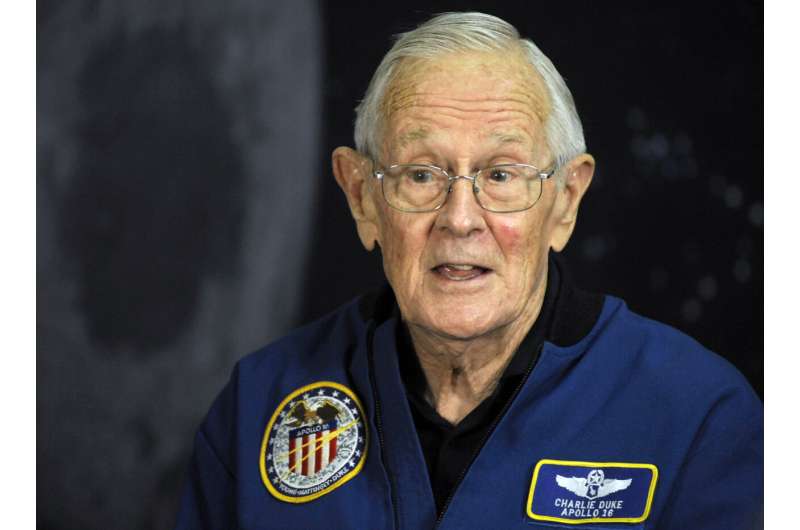
Charlie Duke is part of a tiny fraternity that's getting even smaller: People who walked on the moon.
Duke, 86, visited his Apollo 16 spaceship on Wednesday at the U.S. Space and Rocket Center to mark the 50th anniversary of his one and only trip to the lunar surface.
Space Blocs: The future of international cooperation in space is splitting along lines of power on Earth
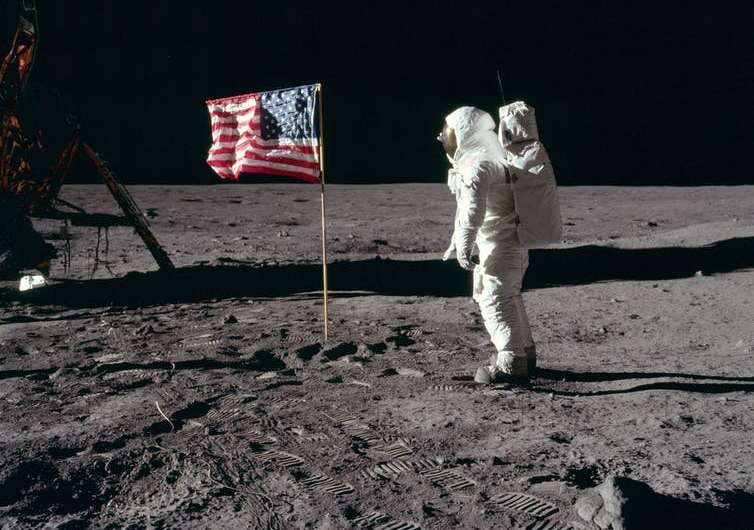
Even during times of conflict on the ground, space has historically been an arena of collaboration among nations. But trends in the past decade suggest that the nature of cooperation in space is shifting, and fallout from Russia's invasion of Ukraine has highlighted these changes.
I'm an international relations scholar who studies power distributions in space—who the main players are, what capabilities they possess and whom they decide to cooperate with. Some scholars predict a future in which single states pursue various levels of dominance, while others foresee a scenario in which commercial entities bring nations together.
Astronaut in space successfully controls ground-based rover
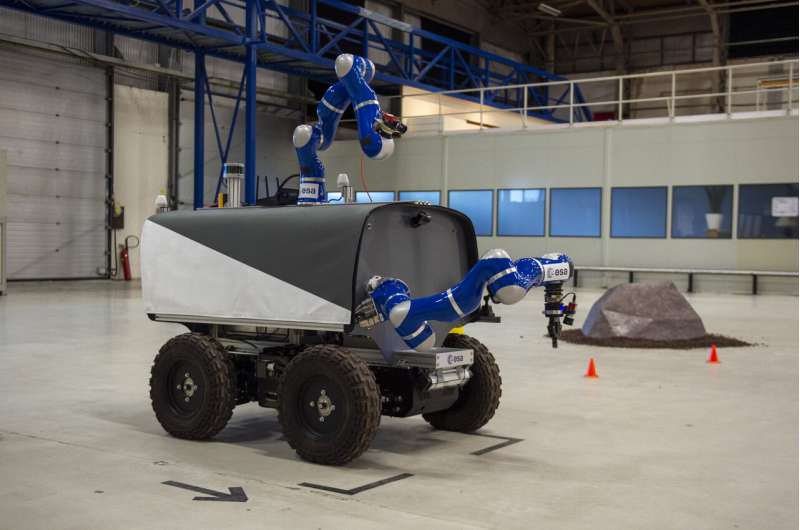
If man's best friend is a dog, then in the future astronauts' closest companions might well be rovers. A technique allowing astronauts in orbit to control rovers exploring planetary surfaces has been developed by a research team from ESA, the German Aerospace Center DLR and European academia and industry, culminating in an Earth-based rover session commanded from the International Space Station. A paper published in the Science Robotics journal this week details their results.
"This is the first time that an astronaut in space managed to control a robotic system on the ground in such an immersive, intuitive manner," comments Aaron Pereira of DLR.
"Our 6 degree of freedom control interface incorporates force feedback so that the astronaut can experience just what the rover feels, even down to the weight and cohesion of the rocks it touches. What this does is help compensate for any limitations of bandwidth, poor lighting or signal delay to give a real sense of immersion—meaning the astronaut feels as though they are there at the scene."
Let the robots take the strain
Highlights from the test campaign of the Smile payload module in Europe
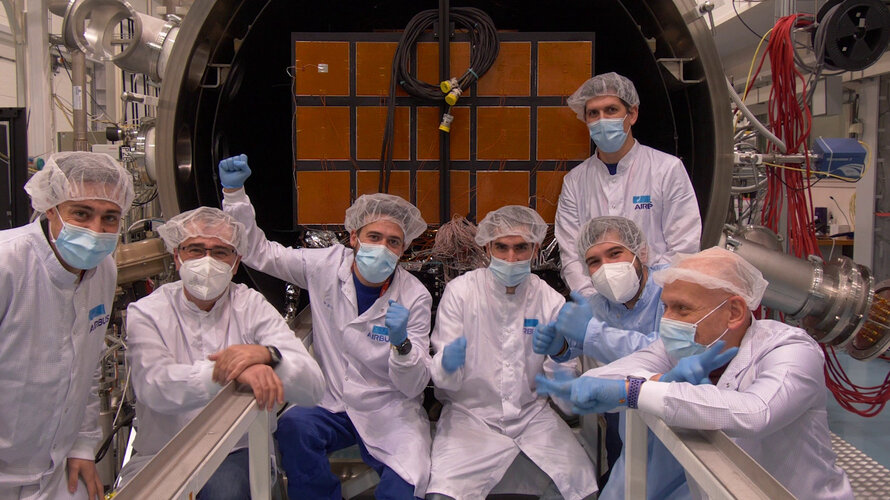 Video:
00:03:53
Video:
00:03:53
This video shows the payload module for the Solar wind Magnetosphere Ionosphere Link Explorer (Smile) undergoing a series of different environmental tests at both Airbus Madrid, Spain, and the European Space Research and Technology Centre (ESTEC) in Noordwijk, the Netherlands.
These milestones include integration of the Soft X-ray Imager and ultraviolet instruments on the payload module (October 2021, Airbus Madrid); preparing and completing thermal testing of the payload module (11–24 Jan 2022, ESA/ESTEC); deploying the 3 m-long magnetometer boom under helium-filled balloons to simulate the weightlessness of space (27 Jan 2022, ESA/ESTEC); vibration testing (Feb 2022, Airbus Madrid);
Ground-based rover’s touch shared with astronaut in space
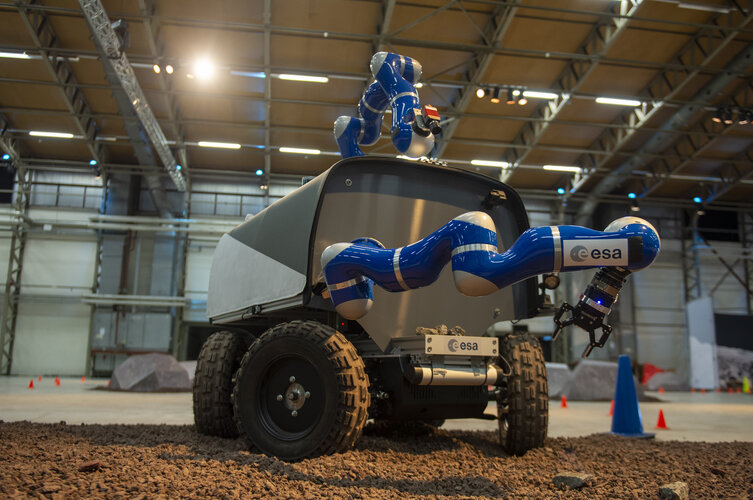
If man’s best friend is a dog, then in the future astronauts’ closest companions might well be rovers. A technique allowing astronauts in orbit to control rovers exploring planetary surfaces has been developed by a research team from ESA, the German Aerospace Center DLR and European academia and industry, culminating in an Earth-based rover session commanded from the International Space Station. A paper published in the prestigious Science Robotics journal this week details their results.
BlackSky supports customers during Ukraine crisis
 BlackSky (NYSE: BKSY) has demonstrated the ability to rapidly shift orbits, launch two new satellites, and collect images over Ukraine all within a 45-day window. In addition to generating a strategic increase in constellation capacity, customers received dawn-to-dusk analytics and imagery products of Ukraine within 24 hours of the company's most recent launch on April 2.
"We're setting a
BlackSky (NYSE: BKSY) has demonstrated the ability to rapidly shift orbits, launch two new satellites, and collect images over Ukraine all within a 45-day window. In addition to generating a strategic increase in constellation capacity, customers received dawn-to-dusk analytics and imagery products of Ukraine within 24 hours of the company's most recent launch on April 2.
"We're setting a Modeling Earth's Magnetosphere in the Lab
 A magnetosphere forms around any magnetized object, such as a planet, that is immersed within a stream of ionized gas, called plasma. Because Earth possesses an intrinsic magnetic field, the planet is surrounded by a large magnetosphere that extends out into space, blocks lethal cosmic rays and particles from the sun and stars, and allows life itself to exist.
In Physics of Plasmas, by AIP
A magnetosphere forms around any magnetized object, such as a planet, that is immersed within a stream of ionized gas, called plasma. Because Earth possesses an intrinsic magnetic field, the planet is surrounded by a large magnetosphere that extends out into space, blocks lethal cosmic rays and particles from the sun and stars, and allows life itself to exist.
In Physics of Plasmas, by AIP 